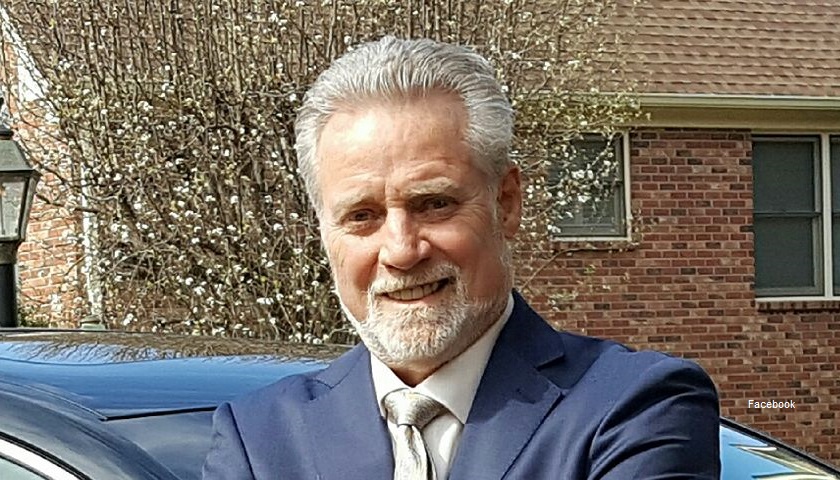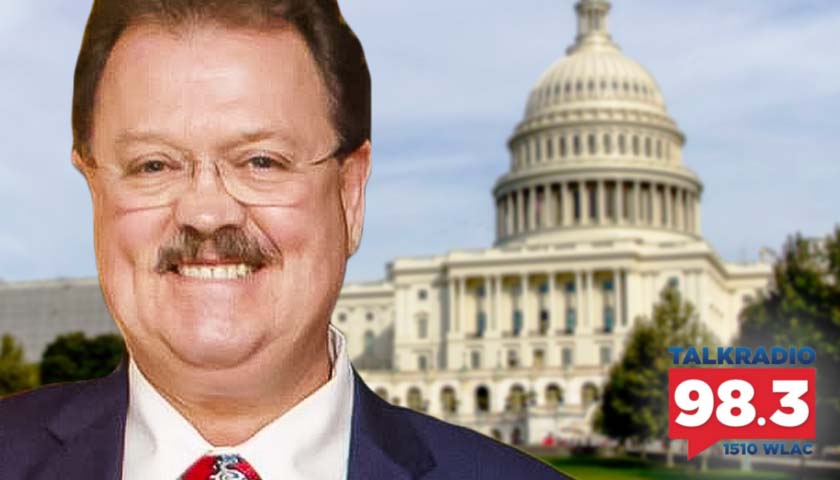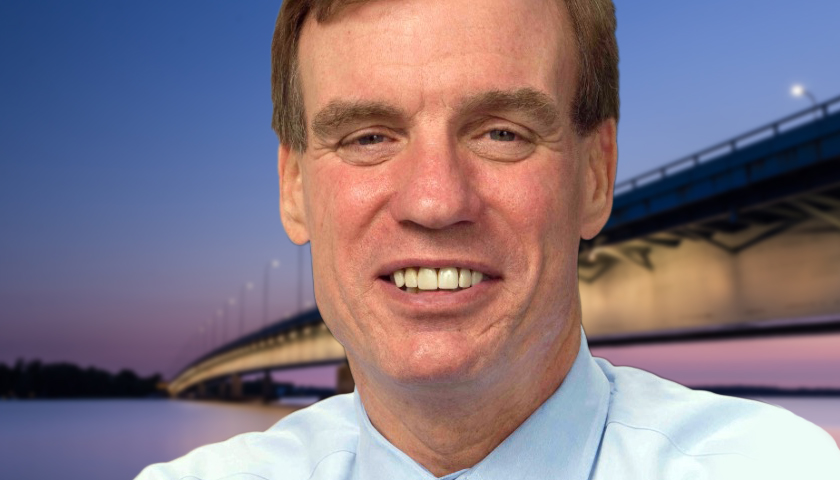Ralph Bristol, host of Nashville’s Morning News on 99.7 FM WWTN, blasted a leading conservative Republican State Representative who opposes Gov. Haslam’s gas tax increase proposal, the IMPROVE ACT “Tax Cut Act of 2017,” on his program Thursday morning.
Earlier this month, State Rep. Jerry Sexton (R-Bean Station) called on Speaker Beth Harwell (R-Nashville) “to hit the restart button in regards to the IMPROVE Act and to send the bill back to Transportation Subcommittee to be debated fairly and openly,” as The Tennessee Star reported.
Bristol is no fan of Sexton or his opposition to the gas tax increase, and made that point very clear on his program Thursday.
Recent developments “will hopefully bury Jerry Sexton in the graveyard of political one-hit blunders,” Bristol said near the end of a lengthy soliloquy in which he praised the current version of Gov. Haslam’s gas tax increase bill. The IMPROVE Act “Tax Cut Act of 2017,” he said, “is still, in my opinion, by far the most conservative plan on the table to increase funding for transportation in Tennessee.”
Bristol also seemed eager to participate in the debate on the floor of the Tennessee House or Represenatives next week when the proposed gas tax increase, which he favors, comes to a vote. He said Thursday he wanted to “see if I can find a House member to substitute for me in the House debate next week against Speaker Harwell and Messrs. Hawk and Matheny.”
State Rep. David Hawk (R-Greeneville) and State Rep. Judd Matheny (R-Tullahoma) support an “alternative plan” that will fund road construction by reallocating a portion of the general sales tax to that purpose, and will not increase the gas tax.
Matheny appeared as a guest on Bristol’s program on Thursday to make the case for the “alternative plan.”
The current version of Gov. Haslam’s IMPROVE Act “Tax Cut Act of 2017” calls for a 6 cents per gallon gas tax increase and a 10 cents per gallon diesel tax increase.
In February, Bristol testified before a Senate committee on the gas tax increase bill that “Governor Haslam’s plan could easily be made revenue neutral, or better, with a larger sales tax cut, whether in groceries, or products in general, and I believe it’s affordable.”
On his program Thursday, Bristol also lavished praise on Governor Haslam.
“I admire his swan song, spending all of his remaining political capital on a gas tax increase,” he said of Haslam.
Listen to Bristol’s comments from his program Thursday morning:
Read along with the transcript:
BEGIN TRANSCRIPT
… So I will deliver my closing arguments first and then, the House will go second and the Senate will go third and we’ll see what happens.
So, ladies and gentleman of the public opinion jury, I like Judd Matheny and I hate nearly every argument that begins this way. But, I really do like Judd Matheny, the Republican Tennessee representative from Tullahoma. Former soldier, former cop, leader of the House conservative caucus. I like his politics, most of the time, his personality and his obvious love of country and constitution so it is out of the most genuine brotherly love that I ask him and other members of the conservative caucus to reconsider whether the features of the plan they support for the $10 billion backlog of state transportation projects really are conservative.
The competition in the legislature now is between the amendment Haslam plan, the so-called IMPROVE Act, and the Harwell-Hawk Plan which would move sales tax revenue from the sale of cars and trucks from the General Fund to the Transportation Fund.
Is it conservative to solve revenue shortfalls by taxing the rich? Now the rich certainly buy the most expensive cars, but they don’t necessarily drive more on our roads and bridges. In fact, the second richest group, the elderly, use the roads at the least but buy among the most expensive cars. So the H-H Plan puts the most disproportionate burden on the elderly rich. A sharp venture away from the conservative idea of everyone paying his or her own way. The idea of personal responsibility.
Is it conservative to stray from that work ethic principle of paying one’s own way through a user fee instead of a tax wherever possible to maintain the relationship between how much you use and what you pay rather than how rich you are and how much you pay. Even if you stray only slightly, is that conservative, if unnecessary?
Has conservative come to mean that you’ll protect your constituents from a price increase even if the price increase is merited? Has conservative taken on such a monolithic tone that the primary goal of conservative lawmakers is to find a way to avoid any tax increase even one that’s part of a net tax cut at the expense of all other goals grounded in the same set of principles.
What is conservative about burdening over-burdened highways and bridges with the need to compete with every competing interest represented in the general side of the budget? I see the transportation budget as that place in “Atlas Shrugged” where the productive people eventually go to avoid the socialist influence of redistributionism. If there were a sequel to “Atlas Shrugged,” all of those productive people who followed John Galt would live in a society that may well have government services, but the cost would be divvied up according to how much each person uses them.
Libertarians don’t reject all collective responsibility, but we reject government forced redistribution for the same reason that slaves have always objected the forced use of their labor for the benefit of others. The H-H Plan creates a revenue pipeline that connects the now disconnected transportation budget funded mainly by user fees charged at the gas pump to the redistributionist world of the General Fund, where highly funded and organized and packs of predators and scavengers fight for revenue subject to the volatility of business cycles.
The Harwell-Hawk Plan creates a pipeline from that chaotic chatter of volatile general funding which has gone, in the short ten years I’ve been in Nashville, from a recession-caused deficit which prompted then-Governor Bredesen to borrow from the less volatile transportation fund, and which Governor Haslam has been methodically paying back, to now when the General Fund is producing a billion dollar surplus.
Granted, it’s a small proposed pipeline, but small revenue pipelines once the justification for them is established can become larger and in no time at all, transportation becomes just another hog – snort, snort, snort – I do my own sound effect sometimes, fighting for slop at the general revenue trough, which is sometimes over flowing, sometimes not.
What is conservative about turning down a cut in the taxes that fund the chaotic side of that budget? Maybe in Washington a tax cut means nothing. They just keep on spending as if nothing ever happened. But, in Tennessee a tax cut means one of two things: 1) the tax cut reduces revenue which will act as a ceiling on general revenue spending, because unlike Washington we can’t deficit spend; or 2) it generates economic growth which expands prosperity and revenues that will be necessary to meet the expanded demand for government services.
In boom times, like now, it’s good to lower that general revenue ceiling to limit the limit the food source and thus the appetites of the general revenue predators and scavengers.
We the people have demanded and received more and better highways in Tennessee than most of the nation. All of the evidence and logic leads nearly all lawmakers to believe that the combination of better fuel efficiency and a static user fee, the gas and diesel tax, has led to a shortage of funds to meet and continue to meet that promise. Unlike any other tax, the gas and diesel tax does not increase with inflation.
Lawmakers have to increase it to continue to depend on it. They hate to do that. They haven’t for 28 years, but still miraculously produce among the most and best highways in the nation. Now as we enjoy an unprecedented spike in general revenue, the highway chicken has come home to roost.
The mild recovery and unprecedented state tax cuts on wealth united to fulfill any governor’s general revenue wildest dream. Enough revenue to pay his predecessor’s recession debt, refill the state’s savings account, give schools an unprecedented funding increase, create a fund and plan to give everyone two years of free higher education that built a public approval rating that put the governor in the top 10 approval ratings in the United States.
Now no one argued more forcefully and consistently against Governor Haslam’s plan to accept and spend Obamacare expanded Medicaid money in Tennessee than I. I believe that Governor Haslam is on the wrong side of the debate over in-state, or as I call it Tennessee taxpayer subsidized, tuition for illegal immigrant students.
I have no interest one way or the other in Governor Haslam’s public future, but I cannot deny I admire his swan song, spending all of his remaining political capital on a gas tax increase. For many the only thing they need to know is that Judd and his allies oppose it, Governor Haslam supports it so what’s there to talk about.
Judd knows what there is to talk about. I like Judd, not just because he’s an Army veteran, police officer and patriot who hosted one of my favorite 2nd Amendment stops by the way – Yay Manchester – but because even though his political world is pretty black and white and mine is more gray, we are brothers and we’ll fight like brothers with respect.
Judd has seemed to emerge as a new leader of a conservative opposition to a variety of issues. I couldn’t be more thrilled about that. This will hopefully bury Jerry Sexton in the graveyard of political one-hit blunders.
Now, in the interest of transparency, I’m going to end this argument. I’ve already forwarded to Judd in advance. I can see if I can find a House member to substitute for me in the House debate next week against Speaker Harwell and Messrs. Hawk and Matheny.
To be clear, the amended Haslam plan, is still, in my opinion, by far the most conservative plan on the table to increase funding for transportation in Tennessee.
END TRANSCRIPT






[…] Bristol has been a proponent of the IMPROVE Act “Tax Cut Act of 2017” since its introduction and continued his support in the second hour of Thursday’s show with an 8-minute “rant,” as Ralph often refers to them. The full transcript can be found here. […]